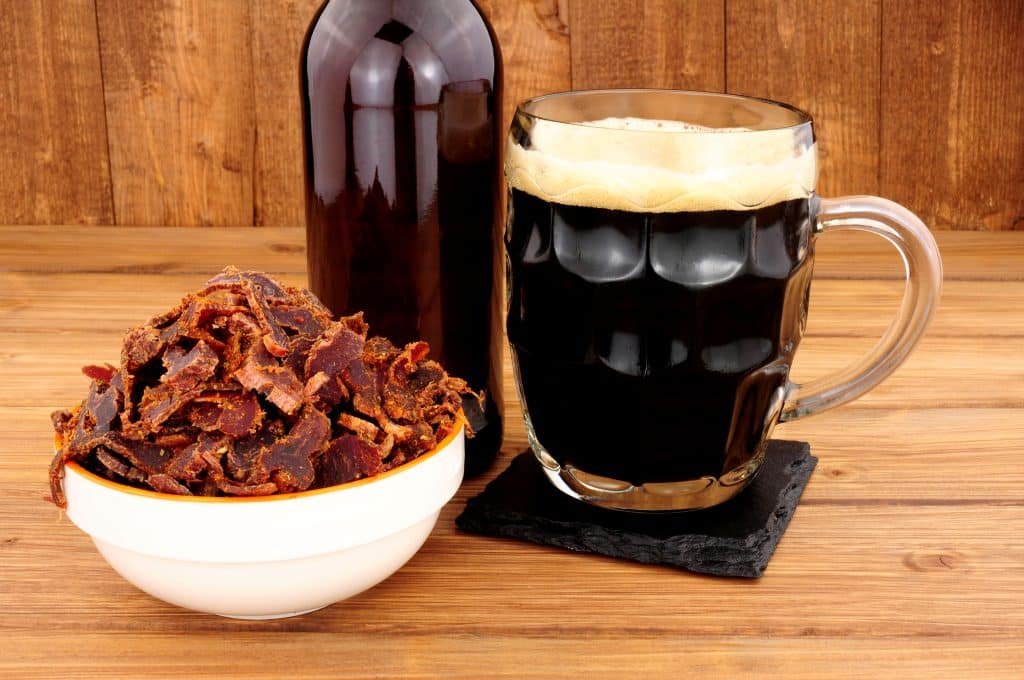History of Craft Beer in South Africa
[Keywords: craft beer South Africa, craft breweries]

South African beer is in the midst of a revolution. For decades, South African beer production was dominated by South African Breweries – that’s still true. However, there’s been a wave of craft breweries opening up throughout the country in recent years. These craft beers each boast their own flavour, recipes, and style.
Even at the international level, South African craft beer is increasingly popular – with a few notable brewers exporting their novel beers across national borders. It’s a massive change from the near past when the only beer you could find was either Castle Lager, Black Label, or Lion Lager. The words stout or pale ale were almost non-existent.
South Africa has always had a love of beer. It is the perfect accompaniment to BBQs, rugby, and the summer sun. But now, the nation of beer drinkers is becoming a nation of beer connoisseurs.
This is the story of how craft beer took South Africa by storm.
What is considered craft beer?
Before we begin – what even is craft beer? It’s not an easy question to answer. Unlike stout, lager, or porter, there are no agreed-upon definitions and brewing differences. Rather, craft beer refers to where the beer was brewed, not how it was brewed.
In a nutshell – craft beer is any beer brewed in a craft brewery, i.e., not a mega-brewery corporation. In South Africa, that essentially means anything outside of South African Breweries, Heineken, and Guinness.
Craft beer is also produced for profit and done professionally, in contrast to the patchwork of homebrewers throughout the continent.
You’ll also hear craft breweries referred to as microbreweries. It essentially means the same thing, although some craft brewers aren’t so micro anymore.
How is craft beer different from regular beer?
In a word – it’s not. At least, not on paper. From Cape Town to Bloemfontein, most South African beers are made with the same ingredients: barley, water, hops, and yeast. They all rely on yeast turning sugars in the grain into alcohol and carbon dioxide.
So what’s the hype for craft beers? Why have they taken the industry by storm?
While the process may be similar – the difference is in the flavourings and brewing techniques. Lagers are less common in craft breweries, for example. And the flavour profile is often more varied. Beers can be dark and rich or refreshing and citrusy. Some have notes of coffee; others are made for easy drinking.
Which one you prefer is all down to your palate. However, you’ll often notice craft beers have a stronger alcohol profile than traditional brands.
History of Craft Beers South Africa
Once upon a time, craft beer was all beer. Every town, city, and even village had their own brewer, with their own styles and traditions. Beer was a part of the cultural fabric. Then, with industrialisation, beer became standardised and mass-produced. The world over, lager became the typical beer of choice, including in South Africa.
Founded as Castle Brewery in 1895, South African Breweries is now one of the biggest breweries in the world – responsible for roughly a third of the African beer market. But with its monopoly, beer became a little too bland and boring.
Something needed to change. The answer was craft beer. Except, it wasn’t a new fad, but a return to the older, locally-based way of doing things. The movement began sporadically around the world. Martin Sykes in the UK was amongst the first craft brewers in 1972. It would be another decade before South Africa followed suit.
Indeed, the 1980s was when the craft beer revolution truly took hold. In 1983 Mitchell’s Brewery in Knysna, in the Western Cape, was the first homegrown South African craft brewery to open its door. It wasn’t the last.
By the mid-to-late 2000s, craft breweries had spread through the country, although half are still based in the Western Cape. Even the big boys have started to take note. In response to the growing trend for craft beers, SAB released a Castle Milk Stout Chocolate infused beer. And SAB’s Fransen Street Brewery opened in 1998 to test new products and spar further innovation. The craft beer revolution was preventing SAB from being complacent.
But where SAB follows, the regional craft breweries lead the way, learning and exchanging brewing ideas with each other. Once again, South Africa’s beer scene is thriving, with new flavours, new ideas, and new beers to try.
How big is the craft beer industry in South Africa?

Craft beer in South Africa still has a long way to go before it eclipses SAB. Nevertheless, its growth has been impressive. As of 2019, there are 215 craft breweries, accounting for just under 1% of the South African beer market. That equates to roughly 34 million litres of craft beer produced annually.
Despite its small start, there were only a handful of microbreweries back in 2010. Almost all the growth has occurred in the last decade. As more and more South Africans sample the sheer range of flavours available from craft beers, it’s likely to pick up the pace. Indeed, globally the craft beer market is expected to grow 14% a year through to 2023.
List of South African craft brewers
Cape Town – Big craft breweries
Darling Brew – Darling, Western Cape
One of the big five craft brewers: Darling Brew is renowned for its excellence, winning the Best Local Craft Beer at the 2021 Kfm Best of the Cape awards.
Cape Brewing – Paarl, Western Cape
The Cape Brewing Company (or CBC) uses the finest ingredients and state of the art equipment to produce a delicious and refreshing array of beers. It’s all thanks to their brewmaster, Wolfgang Koedel.
Jack Black Beer – Cape Town, Western Cape
Starting in 2007, Jack Black Beer is nothing more than a collection of beer enthusiasts creating beer for other enthusiasts. The flavours are rich, delicious and exciting.
Soul Barrel – Cape Winelands, Western Cape
Soul Barrel’s ethos is in the name. Its beers combine the same age-old ingredients producing fresh, delicious beers made with soul. Situated in the former Drakenstein Cooperative Winery, it’s hard to disagree.
Devil’s peak – Cape Town, Western Cape
Established in 2012, Devil’s Peak is focused on high-quality, refreshing hoppy beers. With complex, aromatic flavours, it offers beer at its peak.
Cape Town – Medium craft breweries
The Kennel Brewery – Durbanville, Western Cape
The Kennel Brewery might not be the biggest player, but their beers are amongst the most innovative. Always quick with a pun (check out Come to the Bark Side), you’ll struggle to find a beer you don’t like.
Aegir Project Brewery – Noordhoek, Western Cape
Aegir Project Brewery is named after the Norse god of the sea, who brewed all the ale in Asgard. It’s an ambitious moniker – but if anyone can live up to it, it’s the real, hearty beers of Aegir Project.
KC Brew – Paarl, Western Cape
KC Brew is all about capturing the South African landscape in a bottle. Even their names draw inspiration from the animals of the Cape – from Ram Stout to Rhino Lager.
Triggerfish Brewing – Paardevlei, Western Cape
Triggerfish Brewing has a reputation for innovation. Their beers push limits and dare to try something new. In fact, they also hold the record for the strongest craft beer – at a hangover-inducing 12.5%
Nottingham Road Brewing Company – Nottingham Road, Western Cape
The Nottingham Road Brewing Company is the oldest craft brewery in the country, founded in 1996. It uses only the purest spring water and the finest hops and barley to produce outstanding beers with an unforgettable taste. Small wonder they’re still going!
Johannesburg – Medium craft breweries
Swagga Breweries – Meyerton, Gauteng
Swagga Breweries is dedicated to producing refreshing beers that are the perfect accompaniment to delicious foods. Oh, and they also make some of the most delicious craft gins and vodka in all of South Africa.
OC Brewery – Randburg, Gauteng
OC Brewery produces some of the most fun and creative beers on the market. From Pear a Normal to Gunslinger (a delectable coffee vanilla stout), you’ll struggle to find a beer you don’t want to try.
Black Horse – Magaliesburg, Gauteng
In the verdant South African countryside, the Black Horse Estate produces artisanal craft beers unlike anywhere else. The flavours are bold and exciting, from Golden Draught to Gingery Berry.
Hazeldean Brewing – Tyger Valley, Gauteng
Hazeldean Brewing has a simple goal: produce the best quality beer. There are no funky flavours, just solid, delicious beer for any occasion.
Frontier Beer Co. – Sandton, Gauteng
Frontier Beer isn’t short of ambition. Their mission statement is the “relentless pursuit of world-class beer.” And they’re living up to their name and mission on the frontier of beer innovation.
Durban – Medium craft breweries
Station 43 – Durban, KwaZulu-Natal
S43 is bringing the craft revolution to the east coast. Fed up of importing beer from Cape Town, the team started producing their own delicious craft beers. The rest is history.
Durban Brewing Co. – Durban Point, KwaZulu-Natal
Overlooking the harbour, Durban Brewing Co. produces boutique style craft beer in a range of delicious flavours. These artisanal, hand-crafted beers push the limits of what craft beer can achieve.
References:
https://blaque.co.za/craft-beer-south-africa/
https://en.wikipedia.org/wiki/Beer_in_South_Africa
https://en.wikipedia.org/wiki/Craft_brewery_and_microbrewery
https://edition.cnn.com/2019/10/21/business/craft-breweries-rise-south-africa-intl/index.html
https://superbalist.com/thewayofus/2016/04/05/craft-beer-south-africa/573
https://www.thespruceeats.com/craft-beer-definition-353250
